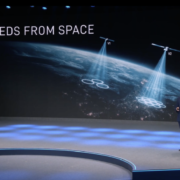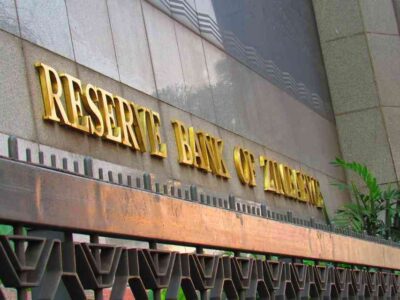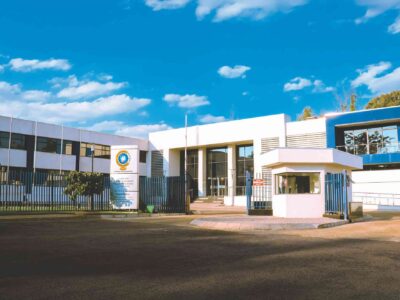By Ross Moyo
Global Tech giant’s are viewing Zimbabwe and Africa as the next battleground for cloud services.In this regard, the World Bank has even backed Africa digital data push with a usd $100 million Raxio deal.
Closer to home, Zimbabwe’s tech infrastructure through SADC has led to a Mozambique-Data-Centre seen by the Raxio Data Centre at MozaParks’ Beluluane Industrial Park, located in Matola-Rio Municipality, Maputo province, southern Mozambique.
On launching its first facility in Uganda in 2021, Raxio is building a network of top standard data centres, including one in Ivory Coast with construction underway in Mozambique, Ethiopia and Democratic Republic of Congo.The World Bank’s private investment arm is backing the rush into digital data in Africa with a $100 million investment in regional data centre developer and operator Raxio Group, funding centres from Ethiopia to Angola.
Key to the importance to support economic growth in Africa, is Improving digital connectivity and building the backbones of digital infrastructure.
This expansion comes as global tech giants and infrastructure investors view Africa as the next battleground for cloud services with Cloud computing and tech giants such as Amazon Web Services (AMZN.O), Microsoft Azure (MSFT.O), and Huawei are ramping up partnerships and presence on the continent, but many still rely on Europe or South Africa for hosting.
“We see the interest, the support, the engagement, the collaboration we are getting from the governments where we operate, who really want this to happen,” said Raxio Group CEO Robert Skjodt.
Nevertheless Building data centres in frontier markets isn’t without risk. Unreliable power supply, complex regulation and political instability can deter commercial players.
Development finance institutions play a crucial role by de-risking early investments that can unlock long-term private capital, said Sarvesh Suri, IFC regional industry director, infrastructure and natural resources in Africa.
“We bring in the right kind of instruments to help support investors to reduce the risk over all this, to make sure that these investments continue to be long-term, sustainable, and profitable, but also economically beneficial for the countries,” said Suri.
Digital demand on the continent is surging, but infrastructure remains scarce. Africa accounts for less than 1% of the world’s data centre capacity even as mobile data usage grows by around 40% annually – nearly double the global average, according to U.S. advocacy group Internet Society.
World Bank’s International Finance Corporation (IFC) debt funding is– its largest such investment to date in Africa – reflects rising interest from global institutions in the continent’s digital economy, where mobile money, AI-driven services and cloud-based platforms are rapidly expanding. Hosting data locally reduces costs, improves speeds and gives governments more control over cybersecurity and regulation.
“Data centres as such and overall digital connectivity is an important area of focus for the IFC,” said Sarvesh Suri, IFC regional industry director, infrastructure and natural resources in Africa.
Closer to home, Zimbabwe’s tech infrastructure through SADC has led to a Mozambique-Data-Centre seen by the Raxio Data Centre at MozaParks’ Beluluane Industrial Park, located in Matola-Rio Municipality, Maputo province, southern Mozambique.
On launching its first facility in Uganda in 2021, Raxio is building a network of top standard data centres, including one in Ivory Coast with construction underway in Mozambique, Ethiopia and Democratic Republic of Congo.The World Bank’s private investment arm is backing the rush into digital data in Africa with a $100 million investment in regional data centre developer and operator Raxio Group, funding centres from Ethiopia to Angola.
Key to the importance to support economic growth in Africa, is Improving digital connectivity and building the backbones of digital infrastructure.
This expansion comes as global tech giants and infrastructure investors view Africa as the next battleground for cloud services with Cloud computing and tech giants such as Amazon Web Services (AMZN.O), Microsoft Azure (MSFT.O), and Huawei are ramping up partnerships and presence on the continent, but many still rely on Europe or South Africa for hosting.
“We see the interest, the support, the engagement, the collaboration we are getting from the governments where we operate, who really want this to happen,” said Raxio Group CEO Robert Skjodt.
Nevertheless Building data centres in frontier markets isn’t without risk. Unreliable power supply, complex regulation and political instability can deter commercial players.
Development finance institutions play a crucial role by de-risking early investments that can unlock long-term private capital, said Sarvesh Suri, IFC regional industry director, infrastructure and natural resources in Africa.
“We bring in the right kind of instruments to help support investors to reduce the risk over all this, to make sure that these investments continue to be long-term, sustainable, and profitable, but also economically beneficial for the countries,” said Suri.
Digital demand on the continent is surging, but infrastructure remains scarce. Africa accounts for less than 1% of the world’s data centre capacity even as mobile data usage grows by around 40% annually – nearly double the global average, according to U.S. advocacy group Internet Society.
World Bank’s International Finance Corporation (IFC) debt funding is– its largest such investment to date in Africa – reflects rising interest from global institutions in the continent’s digital economy, where mobile money, AI-driven services and cloud-based platforms are rapidly expanding. Hosting data locally reduces costs, improves speeds and gives governments more control over cybersecurity and regulation.
“Data centres as such and overall digital connectivity is an important area of focus for the IFC,” said Sarvesh Suri, IFC regional industry director, infrastructure and natural resources in Africa.














Comments